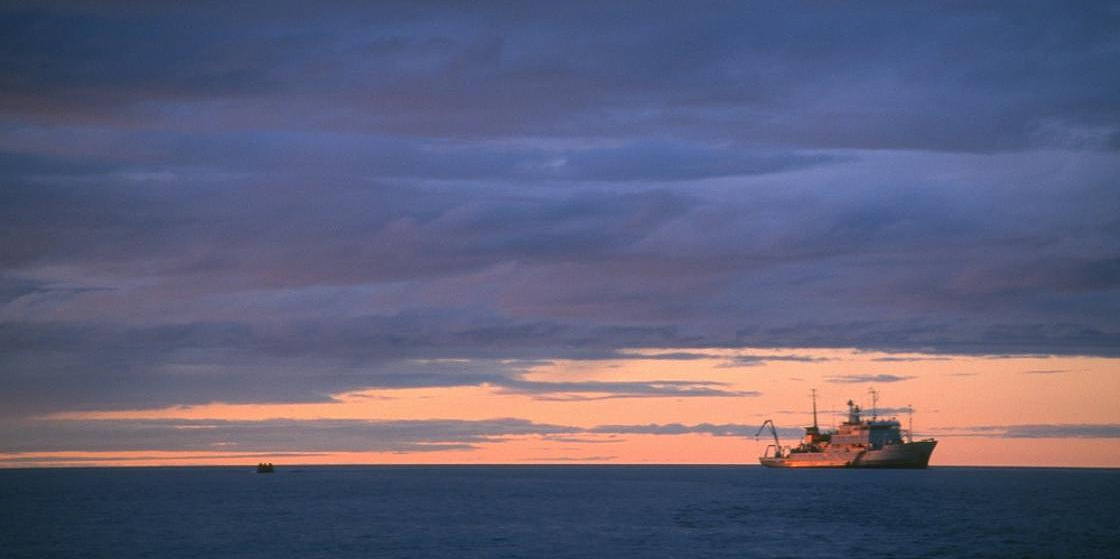
Photo: Makovnev Afanasii/GeoPhoto.ru
Minister Highlights Major Policy Objectives for Russian Arctic and Far East
Alexey Chekunkov, Russia’s Arctic and Far Eastern Minister, gave an interview highlighting key aspects of Russia’s policy in the High North. Here are the top points to note:
The depopulation trend typical for Russia’s Far Eastern regions can be reversed, with newly established preferential areas playing a major role in attracting labor migration from the rest of Russia through creating vacant jobs and stimulating a steady growth of average salaries. According to the ministry’s estimates, nearly two million people may relocate to the regions concerned within the coming one and a half decades. However, this will require major additional investments into the housing sector, as well as a series of steps to improve the overall quality of life.
Human and economic resources should be distributed more evenly in Russia. At present, they are overly concentrated in Moscow and St. Petersburg; this has to change to help secure a more balanced development across the country. Under a revised paradigm for territorial development promoted by the Ministry, fostering new centers of growth East of Urals, in Siberia and the Far East, should be a top priority.
The Ministry has been tasked with increasing the growth rate of the Far Eastern economy to 8% per year. It is estimated that this objective can be met in three or four years from now, mainly through attracting investment and supporting new projects. For the purposes of implementing economic policies, the region has been broken down into four geographic sectors focusing on different areas of development depending on which locally available resources can be capitalized on.
The Ministry is determined to secure more funding for the Russian Far East as part of what is referred to as the “fair budgeting” policy. The present-day system of distribution of expenditures from the federal budget dating back to the early 2000s is largely regarded as an unfair one, with more money being channeled out of the region than staying in its coffers. Minister Chekunkov believes the government should move away from this practice.
The Far East should become a major player on the world climate market. Its sparsely populated and densely forested territories, many of which are known to be exposed to intensive sunlight and strong winds, appear to be ideal for deploying new renewables-based industries and energy generation facilities. In addition, the Russian Far East, which is home to more than a half a billion hectares of forest, can generate carbon units that can be then sold in the global market. To this end, the Ministry considers launching a “free environmental zone” -- a special regime fostering production of renewables and sustainable production clusters.
Far Eastern tourism is trending in Russia. With interest in the region being on the rise, new investments are coming to the tourism and hospitality sector of the eastern and northern territories of Russia. The Russian Far East has all chances to become an important tourist destination in the coming years.
The depopulation trend typical for Russia’s Far Eastern regions can be reversed, with newly established preferential areas playing a major role in attracting labor migration from the rest of Russia through creating vacant jobs and stimulating a steady growth of average salaries. According to the ministry’s estimates, nearly two million people may relocate to the regions concerned within the coming one and a half decades. However, this will require major additional investments into the housing sector, as well as a series of steps to improve the overall quality of life.
Human and economic resources should be distributed more evenly in Russia. At present, they are overly concentrated in Moscow and St. Petersburg; this has to change to help secure a more balanced development across the country. Under a revised paradigm for territorial development promoted by the Ministry, fostering new centers of growth East of Urals, in Siberia and the Far East, should be a top priority.
The Ministry has been tasked with increasing the growth rate of the Far Eastern economy to 8% per year. It is estimated that this objective can be met in three or four years from now, mainly through attracting investment and supporting new projects. For the purposes of implementing economic policies, the region has been broken down into four geographic sectors focusing on different areas of development depending on which locally available resources can be capitalized on.
The Ministry is determined to secure more funding for the Russian Far East as part of what is referred to as the “fair budgeting” policy. The present-day system of distribution of expenditures from the federal budget dating back to the early 2000s is largely regarded as an unfair one, with more money being channeled out of the region than staying in its coffers. Minister Chekunkov believes the government should move away from this practice.
The Far East should become a major player on the world climate market. Its sparsely populated and densely forested territories, many of which are known to be exposed to intensive sunlight and strong winds, appear to be ideal for deploying new renewables-based industries and energy generation facilities. In addition, the Russian Far East, which is home to more than a half a billion hectares of forest, can generate carbon units that can be then sold in the global market. To this end, the Ministry considers launching a “free environmental zone” -- a special regime fostering production of renewables and sustainable production clusters.
Far Eastern tourism is trending in Russia. With interest in the region being on the rise, new investments are coming to the tourism and hospitality sector of the eastern and northern territories of Russia. The Russian Far East has all chances to become an important tourist destination in the coming years.
31 August 2021




